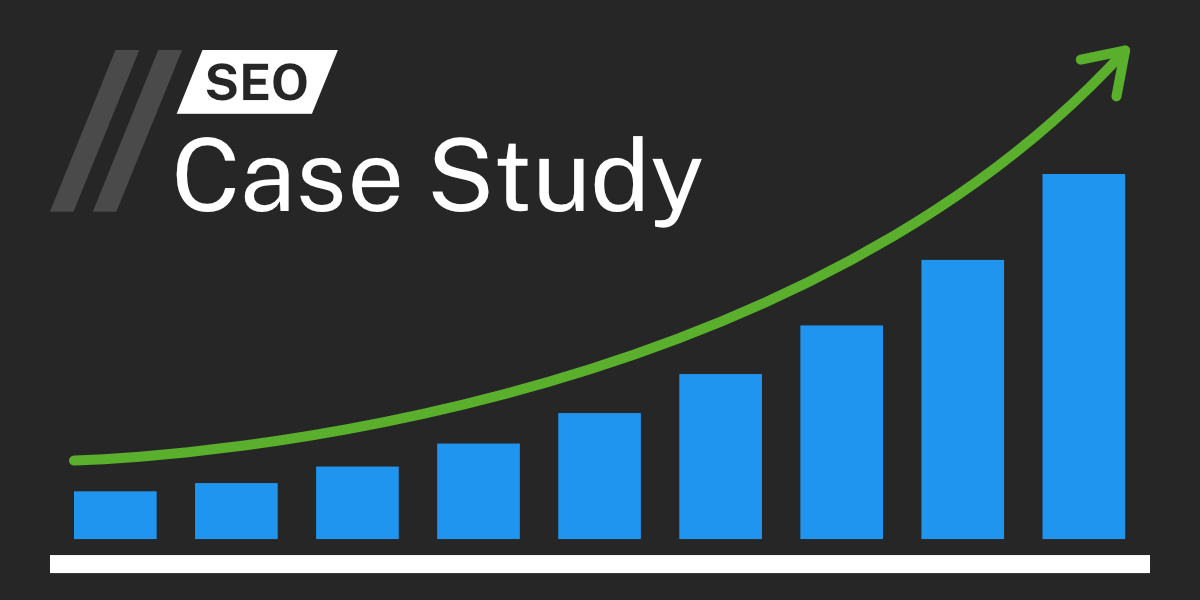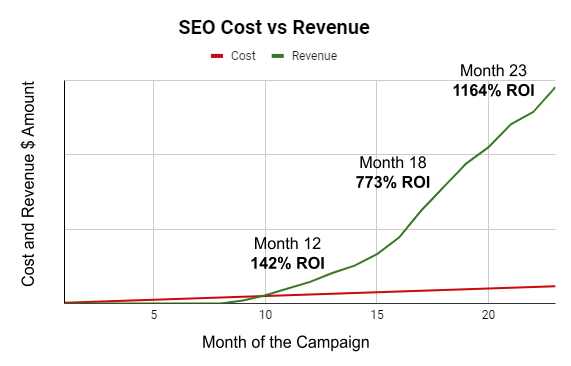Case Study: How SEO Can Improve Your Online Sales

Article highlights:
- Our client started a new business in a niche industry
- They wanted a long-term strategy to obtain continuous organic sales online
- Within the first 2 months of their revenue breaking even with their SEO spend, they made a 142% ROI
- After 23 months, they have made an 1163% ROI on their accumulative SEO efforts
When you are starting a new business, one of the most important things you can do is get the word out and start marketing. It doesn’t matter if you provide local services, have a brick and mortar store, or sell products online. In order to get business, people need to be aware of your business...or at least be able to find your business even if they don’t know they’re looking for it.
In this case study, we’ll show you how we took one of our niche industry clients from a new startup to earning more than an 1100% ROI on their SEO efforts (this doesn’t include their other marketing efforts).
For confidentiality, we never share information about our digital marketing clients without their explicit consent. So you’ll find that the numbers and information about our customer in this case study are vague, but the results (and percentages) are the real impacts of SEO for their business.
The Objective
We built a website for our client and the new business they started. Not much later, they came to us with a desire to start showing up online. Afterall, their business model was ecommerce sales. They wanted a good long-term strategy to help their business organically acquire new customers online. So, that’s what we sought out to do.
An important side note: SEO is just that–a long term strategy. So it was going to take a long time before our client saw any organic sales from their website. Thus, we used some supplemental marketing strategies to help bring in new customers before the SEO started bringing back a return.
Back to the case study…
The Turning Point
After several months of continued SEO efforts, our client began to receive organic sales to their website. These are customers that found their website from online searches on Google and other search engines. And these searches weren’t just for our client’s business name, but revolved around phrases related to the products they offer. That’s the dream!
Once our client started receiving more organic sales, it didn’t take long for them to earn back the thousands of dollars they had spent on their SEO efforts in those first several months. And before we knew it, their organic sales were exponentially growing.
Our client has paid the same amount of money each month for their SEO over the course of their campaign.
The chart below shows a representation of our client’s SEO cost (their spend with us) versus their revenue that came in from their SEO sources (organic searches online). You can see that they broke even around month 10* and their revenue continued to surpass their monthly spend with us.

*Disclaimer: The revenue tracking for our client wasn’t set up until about month 9 of their SEO campaign, so it’s possible that their break even point occurred earlier and that their total ROI is higher than we’ve calculated based on our current available data.
The Main Point
SEO works, but you have to be committed. It can be really disheartening to spend thousands of dollars and not see any return on it in the first year. But you have to see it as an investment. SEO is a strategy that takes a long time of continuous effort to work, and when it does, it really works. Some of our clients get to the point where they are organically bringing in enough business that they can pause other marketing efforts like Google Ads and rely solely on revenue from their SEO (this is how we acquire the majority of our business too).
One more note, because we have to say it: your SEO campaign may look entirely different from this one. Instead of 10 months, it could take a couple of years before you see the return you want. It could take less time. Every SEO campaign is different and depends on your market and the amount of continuous effort (and money) you are putting into it. But when you stick to it, the trendlines are always similar in the long run.
Learn more: Why does your small business need SEO?



About the author
MWS